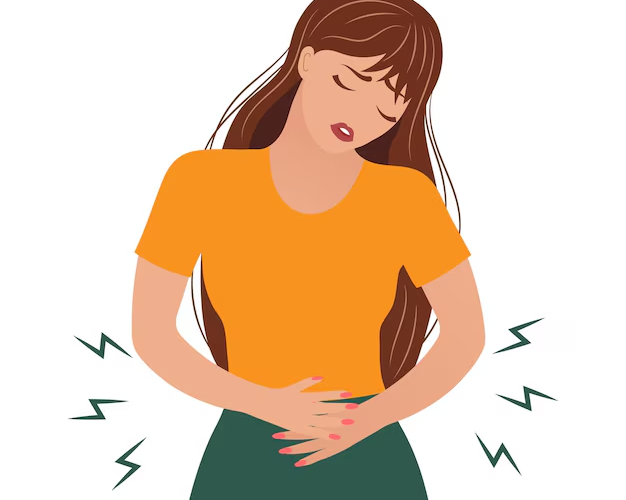
Polycystic Ovary Syndrome and Infertility: A Doctor’s Perspective on Overcoming the Challenge

Polycystic Ovary Syndrome and Infertility: A Doctor’s Perspective on Overcoming the Challenge
As a fertility specialist, I’ve seen many women who come to me with one common concern: difficulty conceiving. Among the most frequent causes of infertility I encounter is Polycystic Ovary Syndrome (PCOS). It’s a condition that affects one in ten women of reproductive age, yet many don’t even realize they have it until they start trying to have children. Over the years, I’ve worked with many patients with PCOS, and I’ve learned a lot about the condition, its impact on fertility, and how we can overcome it together. I’d like to share some insights from my practice, along with a real-life case, to show that even though PCOS can be a challenge, it’s far from impossible to overcome.

What is Polycystic Ovary Syndrome?
PCOS is a hormonal disorder that affects how a woman’s ovaries function. In simple terms, it causes the ovaries to produce an excess of androgens (male hormones) and disrupts the balance of female hormones. This can lead to irregular periods, the development of cysts on the ovaries, and difficulties with ovulation.
For women trying to conceive, this means their eggs may not be released regularly, making it more difficult to get pregnant. In addition, the hormonal imbalances associated with PCOS can also lead to other complications, such as insulin resistance and obesity, which can further impact fertility.
Dr. Linda Evans, a colleague of mine who specializes in treating PCOS, puts it this way: “PCOS is a complicated condition, and it affects women in different ways. The key is to understand how it impacts each individual patient, and then tailor the treatment to their specific needs.”

The Journey of Jessica: A Case of Hope
Jessica, a 32-year-old woman, came to me after struggling for nearly two years to conceive. She had been diagnosed with PCOS during her early twenties but hadn’t realized how much it could impact her fertility until she began trying for a baby. Her cycles were irregular, sometimes stretching over 40 days without ovulation. She was frustrated and overwhelmed, feeling like her body wasn’t cooperating despite her best efforts.
“When I first came to you, I felt hopeless,” Jessica told me during our consultation. “I thought my body was broken.”
We started with a thorough assessment, including blood tests and an ultrasound to examine her ovaries. As expected, the results confirmed that Jessica had cysts on her ovaries, a hallmark sign of PCOS, along with an elevated level of testosterone—one of the factors contributing to her irregular cycles.
“PCOS can make ovulation unpredictable, but that doesn’t mean it’s impossible to get pregnant,” I reassured Jessica. “With the right treatment plan, we can regulate your cycles and help you conceive.”
Treatment Options for PCOS and Fertility
There are several treatment options available to women with PCOS who are struggling with infertility. The right treatment plan depends on the severity of the condition, the woman’s age, and any other underlying health issues. For Jessica, we chose a step-by-step approach that involved both medical intervention and lifestyle adjustments.
1. Medications to Induce Ovulation
One of the most common treatments for PCOS-related infertility is the use of ovulation-inducing medications, such as Clomid (clomiphene citrate) or Letrozole. These medications work by stimulating the ovaries to release eggs. In Jessica’s case, we started with Clomid, which helped her ovulate within the first two months.
Dr. Evans often recommends Clomid for patients with PCOS who don’t ovulate regularly: “Clomid is a first-line treatment for PCOS. It’s affordable, well-tolerated, and for many women, it works wonders.”
2. Lifestyle Changes and Insulin Sensitivity
For women with PCOS who are overweight or insulin-resistant, lifestyle changes can make a significant impact. Weight management, regular exercise, and a healthy diet can help reduce insulin resistance, which can, in turn, help regulate hormones and improve fertility. We also recommended that Jessica work with a nutritionist to develop a meal plan that was low in refined sugars and high in fiber to help stabilize her insulin levels.
“PCOS and insulin resistance go hand-in-hand,” I explained to Jessica. “If we can address the insulin resistance through lifestyle changes, it can help improve your fertility.”
3. IVF as a Last Resort
If medications like Clomid or Letrozole aren’t successful, the next step may be in vitro fertilization (IVF). IVF allows us to bypass the ovulation process entirely and directly retrieve eggs from the ovaries. For some women with PCOS, IVF is a more effective option, especially if ovulation is resistant to medications.
“I know IVF can feel like a daunting option, but for women with severe PCOS, it’s often the best chance,” I told Jessica. “We can carefully control the stimulation of your ovaries and select the healthiest eggs.”
Luckily, Jessica didn’t need IVF. After several cycles of Clomid and making some lifestyle changes, she finally conceived on her own. It was an emotional moment for both of us when she called to share the good news.
“I couldn’t believe it,” Jessica said. “It felt like a dream.”
The Emotional Side of PCOS and Infertility
One of the most important aspects of treating PCOS is addressing the emotional and psychological impact. Many women with PCOS experience anxiety, depression, and feelings of inadequacy, especially when fertility treatments don’t work right away. Jessica was no exception. During our sessions, we talked openly about her struggles with body image and the frustration of seeing friends get pregnant easily while she faced so many hurdles.
“I felt like I was the only one going through it,” Jessica shared with me. “But I realized I wasn’t alone. You helped me understand my body better, and that gave me hope.”
Supporting women emotionally is just as important as treating the physical aspects of PCOS. “Fertility treatment is as much about emotional support as it is about medical treatment,” I always tell my patients. “It’s a journey, and you don’t have to go through it alone.”
Takeaways and Final Thoughts
If you have PCOS and are struggling with infertility, there is hope. With the right medical treatment, lifestyle changes, and emotional support, many women with PCOS go on to have successful pregnancies. The key is early intervention and finding the treatment that works for you.
Here are a few things I’ve learned over the years working with women like Jessica:
- PCOS is treatable: Medications like Clomid, Letrozole, and IVF can be highly effective.
- Lifestyle changes matter: Healthy habits like regular exercise, a balanced diet, and weight management can have a significant impact on fertility.
- Don’t give up hope: Even if treatment doesn’t work right away, there’s always a way forward. Patience and persistence are key.
If you’re struggling with PCOS and infertility, know that you’re not alone. With the right care and support, there’s always hope for the family you’ve dreamed of.






